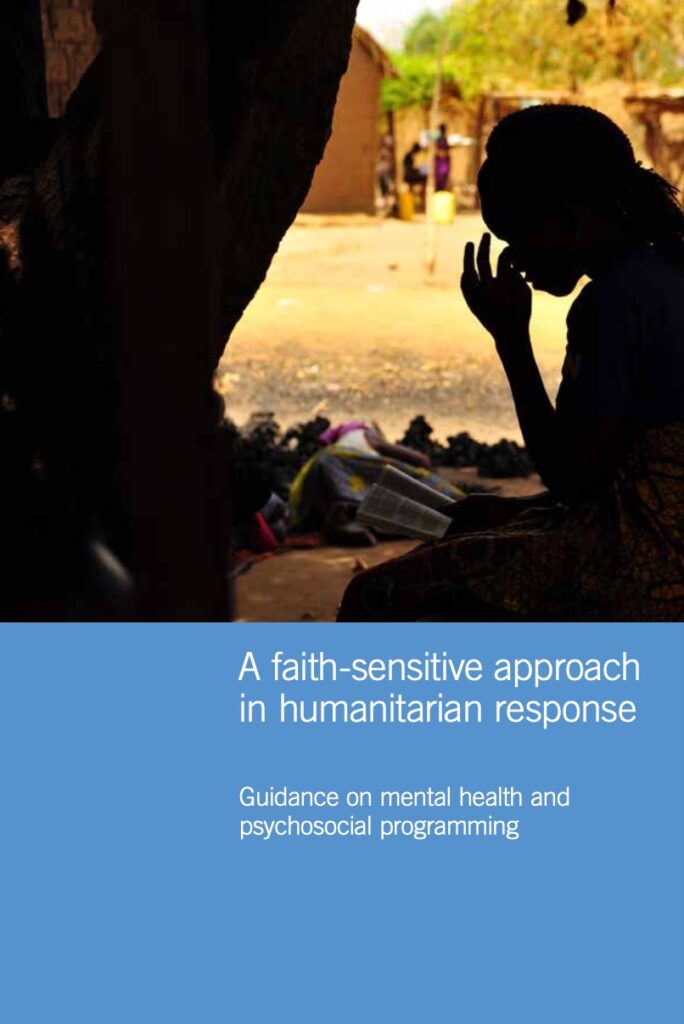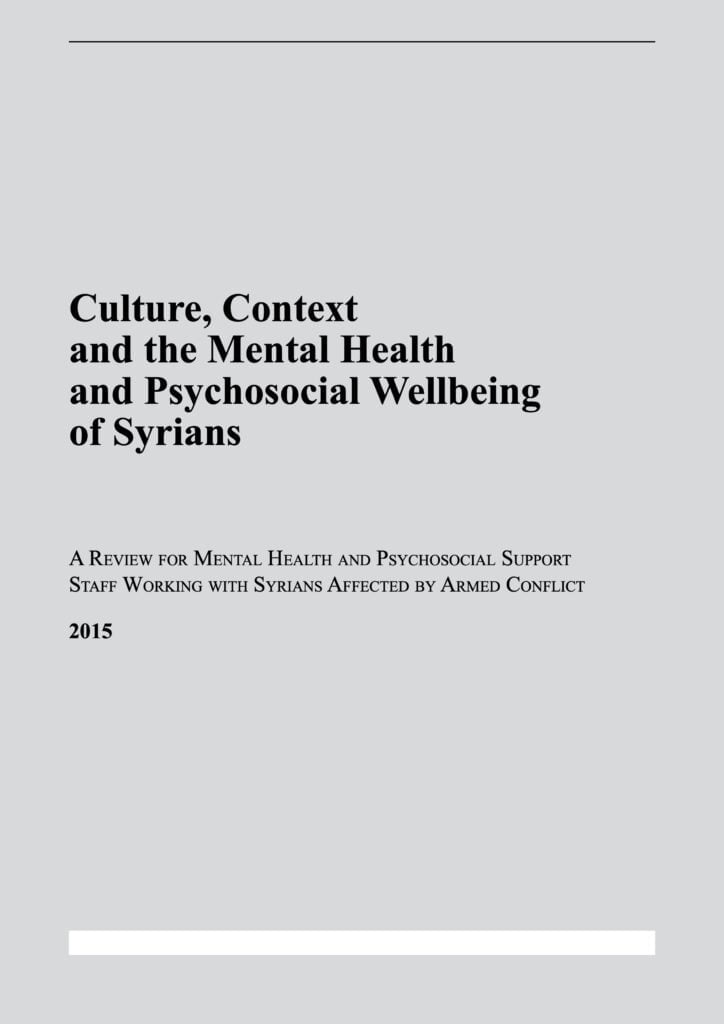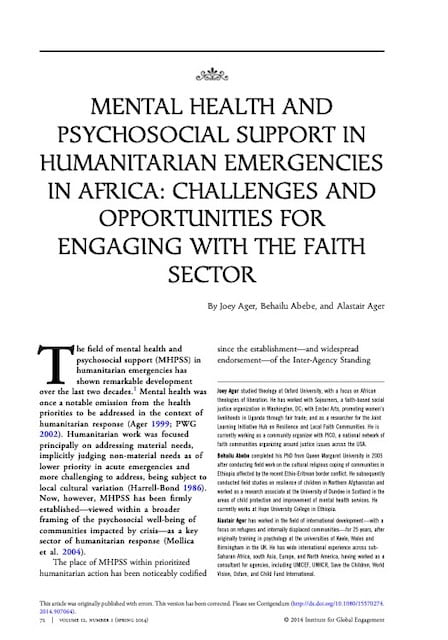Belief in a Just World The authors build on the literature on ‘Belief in a Just World’ (BJW), which suggests that people believe the world functions justly. When people experience extreme adversity, however, their belief in a just world can be shaken. Secondary Trauma For people with strong religious beliefs, the shattering of their religiously […]
The case for faith-sensitive psychosocial programming This review of the then recent literature argues that faith is relevant for psychosocial programming because it is indicated in the IASC Guidelines, is implied in humanitarian law and principles, is an active and effective source of coping, local actors have a ‘comparative advantage’ in humanitarian settings and is
The case for—and challenges of—faith-sensitive psychosocial programming Read More »
Challenging assumptions This article challenges the assumption that counselling and psychotherapy are scientifically sound, universal treatment practices with worldwide applicability that transcend national and cultural boundaries. Contextual model Building on a contextual model, this article argues that those living in non-Western countries or living in Western countries but are less acculturated to dominant Western norms
Shukyosei This article highlights how the Great East Japan Earthquake shook the foundations of Japanese people’s views on life and death, leading to more attention to the role of religiosity or shukyosei and mental health care practices. Relief activities and spiritual care One of the notable features of the relief activities after the Great
Notably secular While MHPSS practitioners have not ignored issues of faith, this article criticises the notably secular language and activities of MHPSS Disconnected Programming This article argues that such an overly technical focus of MHPSS risks disconnecting programming from the perceptions, agendas, institutions and lived realities of local communities of faith. Commitment and Openness While
More than a place of worship The mosque was far more than a religious place of worship for the communities in this study: it was a spiritual defence, part of their survival strategy to safeguard them against losses from natural hazards. Psychosocial healing The authors of this article make the case that Imams and
Religious protective agents The results of this study identify religious agents that contributed to promoting adolescent refugees’ psychosocial well-being. For example, church staff and congregants were protective agents, providing spiritual guidance, material support, after- school and social activities, and as caseworkers for adolescents experiencing trouble in school or at home. Religious protective resources Faith
Strong relationship In this chapter, the authors address the question: does a person’s degree of spirituality make a difference to/in their ability to survive and recover in times of crisis, and if it does, can and should humanitarian aid agencies seek to support spirituality? Faith and recovery from trauma While the relationship between spirituality and
The Role of Spirituality in Humanitarian Crisis Survival and Recovery Read More »










